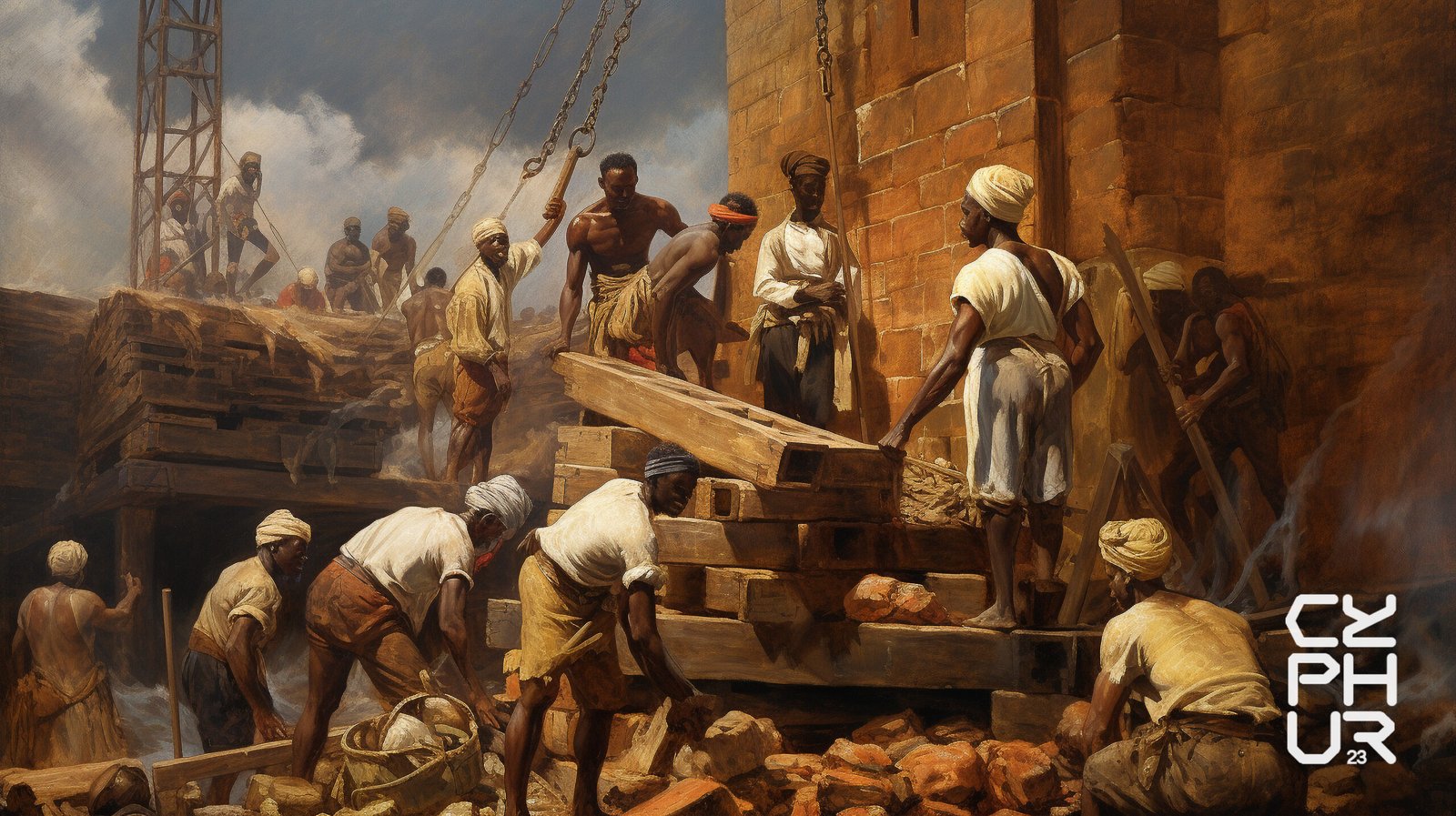The Transatlantic Slave Trade stands as a horrifying chapter in history that continues to reverberate through the generations. Beneath the appalling cruelty and oppression lies a deeply calculated scheme: slave traders purposefully sought out Africans based on their trade skills to enhance the productivity of the New World. The dark realities of this exploitative enterprise call for honest acknowledgment and reflection, as recent attempts to water down the history of African-Americans only perpetuate a racist narrative and undermine the immense suffering they endured.
The Transatlantic Slave Trade was no random act of cruelty. Slave traders, driven by greed and a desire for economic gain, meticulously identified and targeted individuals with valuable trade skills in their African homelands. These skills were seen as a means of maximizing profits in the New World, ensuring that the labor of the enslaved would be ruthlessly exploited in various industries.
The African continent was a tapestry of diverse cultures and societies, each possessing unique expertise and knowledge. From agricultural techniques to craftsmanship, architecture to engineering, African communities had developed skills that made them invaluable targets for slave traders seeking to further the interests of the American colonies.
In regions where agriculture thrived, the knowledge of crop cultivation and techniques was highly prized. African slaves skilled in cultivating crops such as rice, yams, cotton, and various grains were eagerly sought after by plantation owners in the Americas. The forced labor of these agricultural experts led to significant economic gains for the slaveholders, while these skilled individuals endured unimaginable suffering and exploitation.
Craftsmanship was another essential skill that slave traders actively sought out. Weavers, potters, blacksmiths, and woodworkers fetched exorbitant prices at slave markets due to the potential economic contributions they could make in the New World. Their expertise in textile production, pottery-making, metalworking, and woodworking played a crucial role in advancing various industries, with the profits lining the pockets of their oppressors.
African architectural and engineering talents were not lost on the slave traders either. Individuals with knowledge in urban planning, bridge construction, and defensive architecture were deliberately targeted. Their skills were forcibly put to use in developing the infrastructure and fortifications of the American colonies, perpetuating a cycle of exploitation that robbed them of their humanity and agency.
The calculated exploitation of the Transatlantic Slave Trade also extended to the breeding of slaves. Slave traders sought individuals with exceptional physical attributes or specific genetic traits, subjecting them to breeding like livestock. This heinous practice resulted in generations of slaves who were viewed as mere commodities, further deepening the dehumanization and suffering they endured.
In the face of this stark historical reality, recent remarks by Governor Ron DeSantis are deeply troubling. To suggest that slaves were “taught” trade skills and subsequently “benefitted” from them is not only farcical but also racist. Such statements undermine the brutalities of the Transatlantic Slave Trade, and they whitewash the immense suffering endured by millions of enslaved Africans who were forcibly stripped of their cultural heritage, language, and dignity.
Governor DeSantis’s comments serve to water down the history of African Americans, erasing the deliberate and systematic exploitation of their ancestors for economic gain. By diminishing the horrors of the Transatlantic Slave Trade, we perpetuate a dangerous narrative that trivializes the lasting effects of slavery on African-American communities today.
We must recognize that the trade skills possessed by enslaved Africans were not willingly given or generously taught, as Governor DeSantis implies. Rather, they were stolen and exploited to further the interests of a ruthless system that thrived on the dehumanization and subjugation of an entire race.
Instead of perpetuating racist narratives that downplay the horrors of the past, we must confront the truth with honesty and humility. Acknowledging the calculated exploitation of the Transatlantic Slave Trade is not about guilt-tripping or pointing fingers; it is about understanding the complex historical legacy that has shaped the present.
The African-American community, despite enduring centuries of systemic racism and oppression, has made remarkable contributions to the fabric of American society. To fully appreciate these contributions, we must first reckon with the painful history that led to their arrival in the Americas as enslaved individuals, targeted for their trade skills and forcibly subjected to unimaginable suffering.
The Transatlantic Slave Trade was a calculated and brutal enterprise that deliberately targeted Africans based on their trade skills to maximize profits in the New World. Attempts to water down this history and trivialize the suffering of African Americans through racist narratives are deeply harmful and disrespectful. As we strive for a more just and equitable society, we must confront the painful truths of our past and ensure that the voices and experiences of African Americans are heard and respected. Only through a truthful examination of history can we build a future that upholds the dignity and rights of all individuals, regardless of their background or heritage.
At the end of this road, there should only exist truth.
